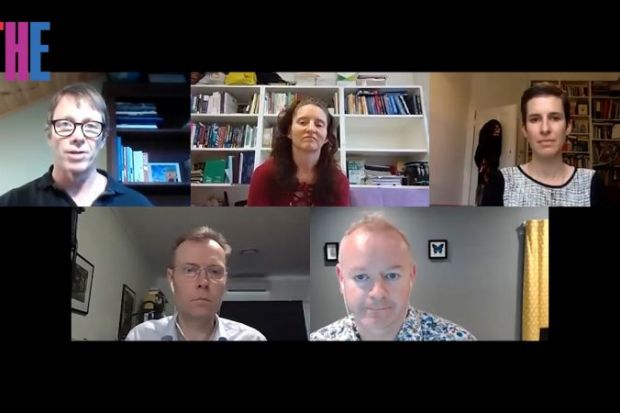Australia could lose some of its best scientific researchers but keep less strategically important staff during coronavirus cutbacks, a leading higher education commentator has warned.
Andrew Norton, professor in the practice of higher education policy at the Australian National University, said he was concerned that the financial squeeze on Antipodean universities caused by a loss of international students might cause them to shed staff who were easiest to lay off, such as those on research contracts that are about to end.
Meanwhile, academics doing research that was less internationally recognised or strategically important but was more likely to contribute to economic growth would remain in post if they had an open-ended contract, said Professor Norton.
“The danger is that we lose staff based on the nature of their employment contract, rather than a strategic phase-down according to the importance of the research,” he told an online forum held on 29 May by Times Higher Education.
His warning follows a report by modellers at the University of Melbourne, published on 29 May, that forecasts that Australian higher education stands to lose A$3.3 billion (£1.8 billion) in international fee income in 2020 and A$11.5 billion by 2023. These shortfalls threaten the viability of half of Australian universities, the analysis says, with many universities already planning large-scale job cuts.
“There is probably only a relatively small number of projects that end up generating large returns,” said Professor Norton, who explained that these projects, and Australia’s research system in general, “relied on a large amount of discretionary revenue, which principally comes from international students”.
However, Gigi Foster, professor at UNSW Sydney’s School of Economics, said any focus on preserving “useful” research was problematic because it did not recognise the wider value of scholarly activity.
“Having a research sector where you can draw the interest of people who are PhD-educated from around the world – the best researchers, the best scholars − [and] establish a training ground for the next generation of PhD scholars is a mark of a very developed, civilised society that is thoughtful and peaceful,” said Professor Foster.
“It is a way to raise Australia up from the anti-intellectual history that it has had, in parts, compared to some of its peer nations,” she added.
Tamson Pietsch, senior lecturer in social and political sciences and director of the Australian Centre for Public History at the University of Technology Sydney, said the predicted job cuts were “deeply concerning”, but the current crisis was an opportunity for universities to focus more closely on their local communities rather than on international students.
“It does feel that this is kind of a pivot moment,” said Dr Pietsch, an expert on university history. “We need to think about what the local constituency is and what the social licence is locally…and how it intersects with a regional presence,” she explained.
Universities had been right to focus on attracting international students, but times had changed, Dr Pietsch said.
“Vice-chancellors would have been mad not to go for the international student boom – it was a gold rush,” she explained. “You dig the gold out of the ground, but the question is where do you invest it…and perhaps buildings wasn’t a bad place to put it, as it sticks around.”
“But we have a different question now, which is what are universities for and who [do] they serve?” she said.
jack.grove@timeshighereducation.com
Watch the full debate
Register to continue
Why register?
- Registration is free and only takes a moment
- Once registered, you can read 3 articles a month
- Sign up for our newsletter
Subscribe
Or subscribe for unlimited access to:
- Unlimited access to news, views, insights & reviews
- Digital editions
- Digital access to THE’s university and college rankings analysis
Already registered or a current subscriber?










